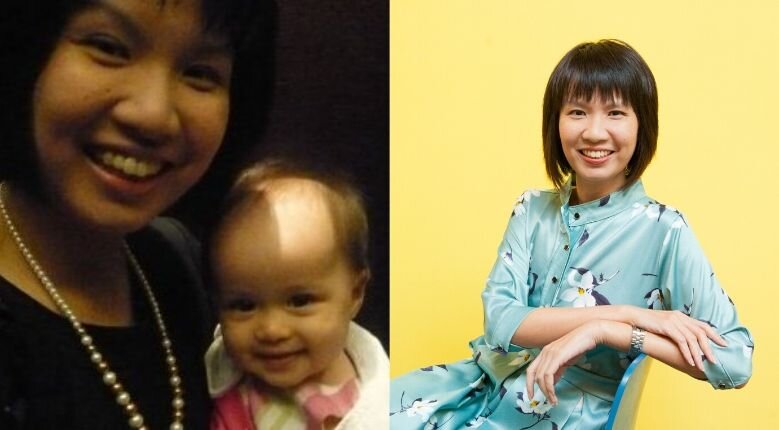As of writing, 'compromising career for family’ has garnered more than 10 million searches on Google. Does the number surprise you? Probably not — perhaps due to the continuous double standards women face on the subject of family versus professional life. What's interesting is that three years ago, we wrote a Clozette Chats discussion piece on the practicality of work-life balance — and yet, three years on, the narrative still hasn't changed with this 'buzzword' yielding 2.1 billion search results at this very moment.
The rise of women deciding to put off marriage or motherhood for their careers, especially in Asia, speaks for itself. Women globally are facing more career penalties than men when it comes to child-rearing routines, making it a valid concern even in light of today’s 'women empowering' society. With that, can we really fault women for asking if having to choose between career and family is inevitable, even at this day and age?

In light of Mother’s Day on Sunday, let us dissect this topic further in the name of women — mums or not — who are looking to find an answer to this question. Together with Sher-li Torrey, founder of Mums@Work Singapore and co-founder of Career Navigators, as well as Janice Lao-Noche, Hong Kong & Shangri-La Hotels Corporate Responsibility and Sustainability Director (and the first Filipino and Asian Edie Sustainability Leader of the Year Awardee), we discuss holistic empowerment, balancing high-stress careers with family planning, and the importance of an effective support system in our roles as professionals, as mothers (or potential mothers), and as multi-hyphenate women.
Being a woman in the workforce
For Janice, it was by choice that she put off family planning so she wouldn’t have to “worry too much” about the 'impact' it might have on her career. It was a decision made not just based for her professional advancement as a female Environmental Scientist and Development Economist; it was her desire to be in a more 'favourable' position before she becomes a mother.
When Janice and her husband finally started a family, she explained that just like everything else in life, she realised that parenting requires huge discipline and commitment much like her high-velocity career. This meant “giving up on other things” to deliver on her priorities, which are ultimately her children.
“I think the belief is that you can't have it all. My secret to [having it all] is I make time for my kids,” Janice shared. “They are scheduled in my work calendar. I have to manage my time effectively so I can raise them.”
 Janice and her two children
Janice and her two children
She explained that she is now in a position to be “very strict during weekends” when it comes to pausing all work commitments to fully focus on spending time with her family. On work days, she also makes sure to go home at a set time to spend more time with her kids.
Sher-li, on the other hand, shared that it was only after she became a mother that she started considering options to not compromise on her career or time with her children. In contrast to Janice, Sher-li's story illustrated that not everyone has the liberty to plan beforehand; it was only after having her first child that she realised how limiting options can be for working mums.

Left: Sher-li with her daughter in 2009; Right: Sher-li at present as Mums@Work's CEO
This prompted her to establish Mums@Work, which helps advocate a healthier working environment for career women who hustle as mothers or family caregivers. “Women are not always given equal working rights in a workplace, regardless of her educational level, or social-economic status,” said Sher-li, after listening to the sharing of the working women through her organisation.
Today, both of them are at the top of their game, being a company director and a CEO of a social enterprise, respectively. They are also hands-on mothers — much to the unwarranted surprise of many people they encounter.
Support systems as powerful enablers
They might seem like they have everything figured out, but Sher-li and Janice have their fair share of challenges too.
“Gender bias when hiring or promoting or retaining talents are done merely because a woman chose caregiving for their family — be it her children or elderly parents — as a priority. Based on that decision, immediately the workplace becomes less willing to offer them the same career opportunities as before,” Sher-li expressed. “To me, that is bias behaviour and the rights of mothers — or women caregivers — must be championed.”

A woman, along with her organisation and leaders, must recognise mutual priorities and values hand-in-hand
“For me, life is not about sacrifices," Janice highlighted. "It is about focus and priorities. So when I balance work and family life, I think of them as priorities. It’s important to find a company and a boss that respects this.” She elaborated by saying that she’s been in situations before when she had to choose between the two and it’s not always an easy decision. But as trying as some situations were, in the end, it’s always family first.
She shared that support in the form of immediate family, like one’s spouse or parents and siblings, also play a role in enabling a woman to pursue her fullest potential. One's empowerment is not equivalent to doing things independently, for even the most formidable individuals acknowledge support from time to time.
“I never really planned to have kids and I am very driven by nature. I was prepared to make the sacrifice of not having kids and just concentrate on my career,” Janice admitted. “But I met my husband and I could imagine having children with him and that he would be an equal partner in rearing our kids. So having kids with the right person is key,” she added.
She also pressed that in reality, not all women are in the position to be assertive in pursuing such enabling factors in their workplace. Therefore, it is up to the organisations, as well as those in leadership positions, to give working women a “safe space where they can speak their mind without being penalised”.

Immediate family also play a huge role in enabling a woman to thrive in both life paths
Sher-li agreed, expressing that she envisions greater and more supportive policies for career women in general as we move forward as a society. She shared: “[Mums@Work] hopes to continue to push for work environments to be more welcoming of mothers and for more employers to implement flexible work arrangements. Separately, we hope to engage more employers in hiring women with career gaps. My long term goal is that both objectives are part of the recruitment or employee engagement strategy of 80 per cent of firms based in Singapore.”
Powering through is not about compliance, it is a choice
Finally, when people think of work-life balance, they often see it as powering through two immovable and uncompromisable factors — especially when motherhood is put into the picture. But if there’s one thing women have proved over and over — like Sher-li’s and Janice’s stories — balancing career and family has never been about compliance; it is a matter of choice that requires much agency and effort. Of course, the same goes for those who choose one over the other (meaning singlehood or being a full-time homemaker), despite the unsolicited condemnation of many.

At the end of the day, it's all about one's will to choose.
There are so much will and determination poured into this decision-making. Still, women choose to navigate these territories. We'd love to share that there is an absolute answer to this circumstance in our reality, but as we said at the beginning, 'it's not as simple as yes or no'. Still, we hope that Sher-li and Janice's stories have inspired you to power through your challenges.
So to answer our initial question, the choice is up to you. Just know that whether you end up choosing either, neither or both, with the right support, awareness and empowerment — along with your own strength and passion as a modern-day woman — there is a way to make career and family work in tandem.
Interested in more talks about motherhood? Be enlightened and entertained with these mum-centric TV shows from across the region.
Comments, questions or feedback? Email us at [email protected].





.png)


